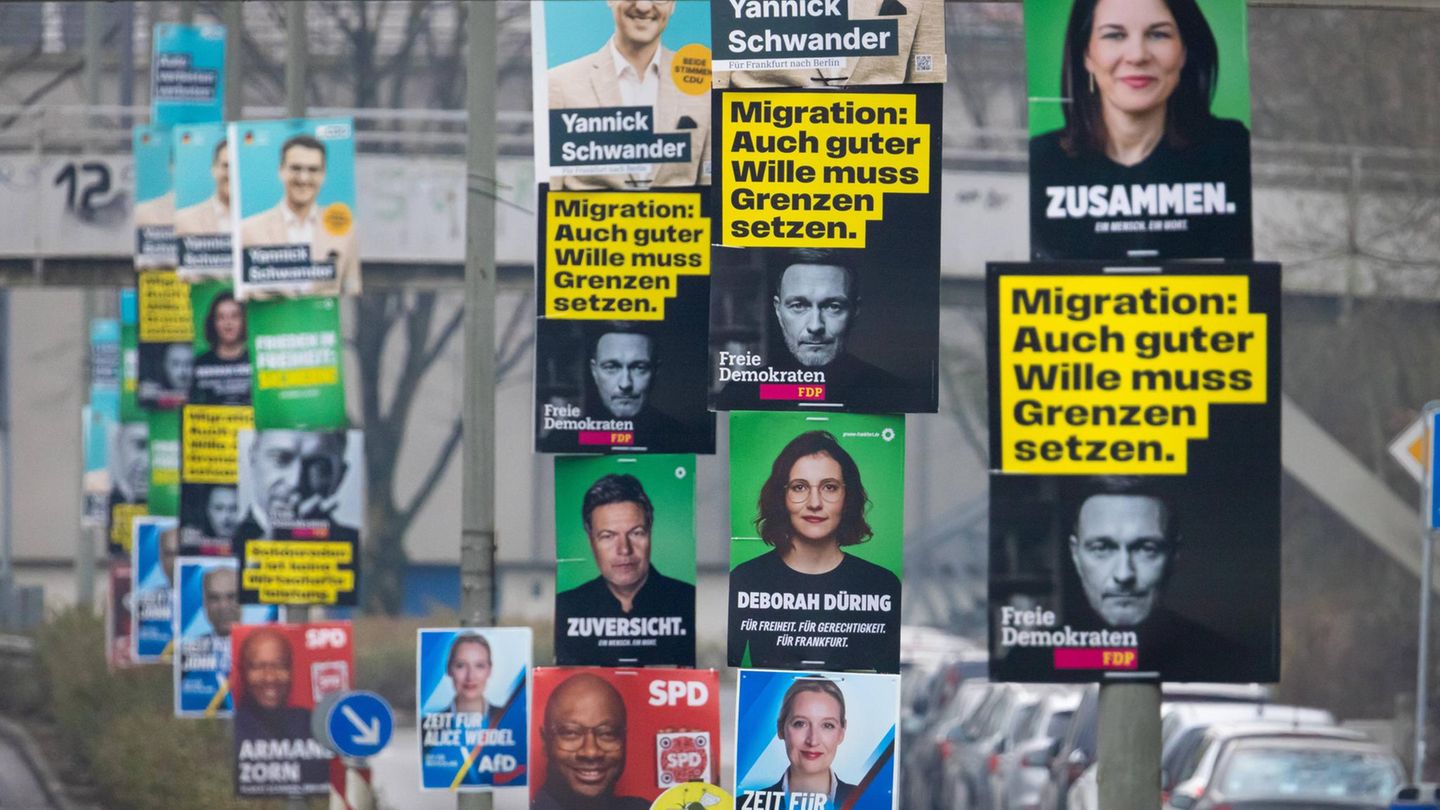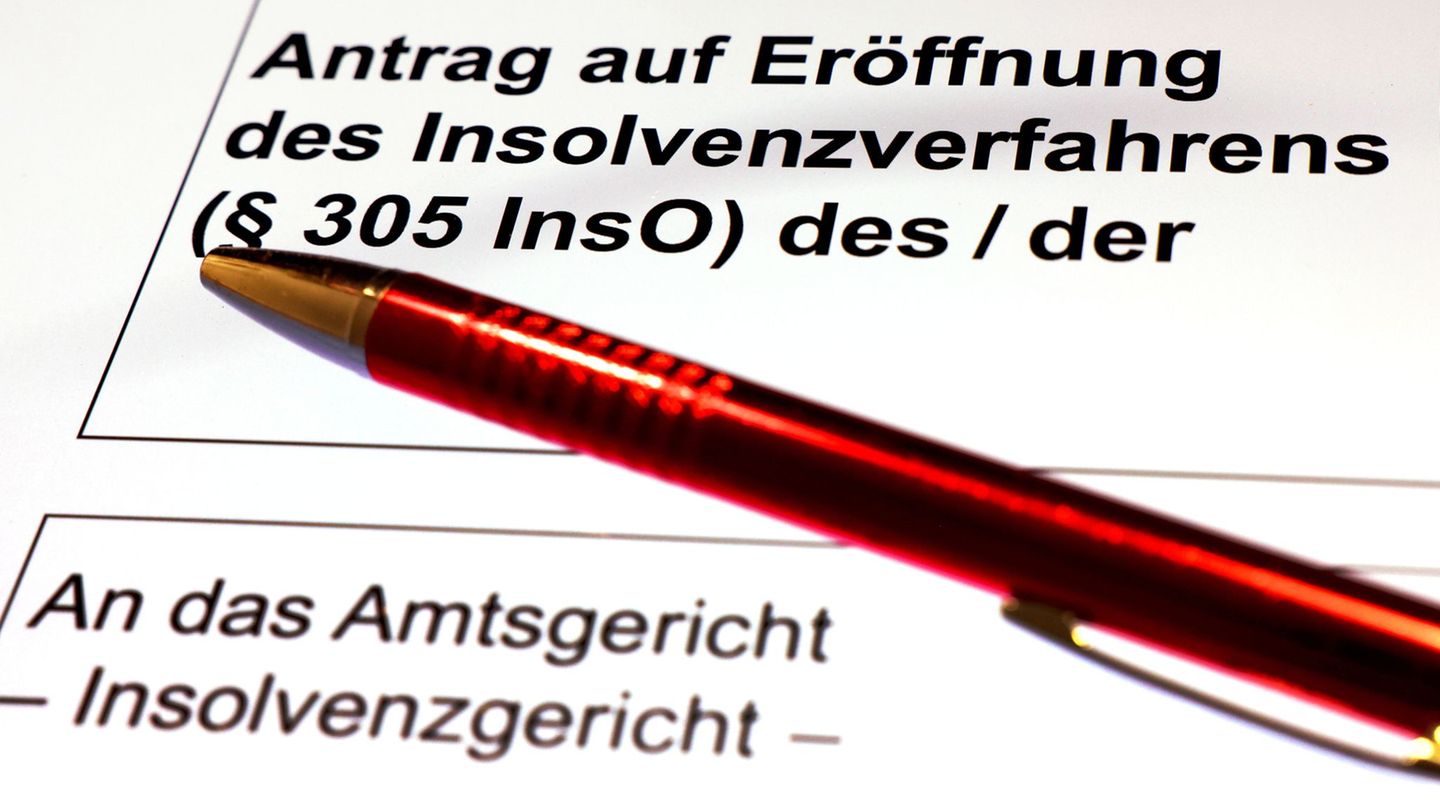The government’s expert council
Germany threatens to miss the 2030 climate goals. What could help now
Copy the current link
Funding, purchasing incentives, benefits: Germany does a lot to promote climate protection. But it is not socially just. And there are other problems.
From the perspective of experts, Germany is not on course at its climate goals for 2030. In addition, the topic of funding is not socially justice. This increases the pressure to act for the next federal government – which should be completely reorganized when it comes to climate protection from the perspective of the “Expert Council for Climate issues”.
The expert council is an independent five -member body that checks the effectiveness of German climate protection policy and provides politics. His tasks are legally stipulated.
How does Germany feel about climate protection?
Germany has improved. This is due to CO2 reductions, especially in energy and industry. This has to do with the expansion of renewable energies from wind and sun, but also with production declines in industry because of the weakness.
According to the Council, however, it seems questionable that the climate target for 2030 is reached “without significant adjustments”. Until then, the emissions of greenhouse gases are expected to drop by 65 percent compared to 1990. Oil and gas heaters are further installed in the buildings. In addition, many new cars are also approved, which can be traveling on German roads for a long time with petrol or diesel. There are progress thanks to many new wind turbines and solar systems in the energy sector.
Are the measures all efficient?
How effective and how expensive the climate protection efforts are depends on the respective instrument. Some took a closer look at the experts.
- European emission trade: Here companies have to prove rights to emerge from greenhouse gases and can act with each other as needed. From 2027, this system also includes buildings and traffic. The council rates the whole thing as a “potentially far -reaching instrument”. However, it is not sufficient for Germany’s climate goals.
- Climate protection contracts: Here, the federal government takes over the extracostens for a transition period, which will result in companies by switching to more climate -friendly production methods. This should also promote new technologies. They could potentially be “an effective instrument”, says the council. But further steps are necessary so that not only individual companies but entire industries could use new knowledge.
- Federal funding for efficient buildings (BEG): Here, the federal government supports the installation of climate -friendly heating, energetic renovations as well as construction and initial purchase of climate -friendly buildings. This is a “central climate protection policy measure in the building sector,” praises the council.
- Building energy network (opposite) and municipal heat planning: The much -discussed heating law stipulates that newly built -in systems must be operated at the latest from 2028 with 65 percent renewable energy sources. Depending on the size, municipalities must create heat plans by 2026 or 2028 that determine which technologies and energy sources are suitable for the respective region. Both are “relevant instruments” in the implementation of EU guidelines for climate protection for buildings, the Council is located. However, it is controversial whether the funding is sufficient with social graduation “to maintain social peace in the implementation of the opposite”.
He thought it was “dangerous” to turn the package from the heating law, building renovation and heat planning back, said Hans-Martin Henning Chairman. Planning security is important and also reaching the climate goals. The CDU wants to abolish the heating law. - Environmental bonus: From June 2016 to December 2023, the state promoted purchase or leasing of electric cars. In addition to private individuals, companies also benefited from this for the majority of this period, and hybrid cars were also promoted for a long time. This has saved energy and greenhouse gas savings. According to the Council, however, more wealthy households benefited, and the costs for the state were also quite high in relation to CO2 savings.
- Germany ticket: This enabled users to use public transport for 49 euros, now for 58 euros per month. There are indications that this leads to a greater use of public transport and less use of cars, the council writes. Surveys indicated that more educated commuters from the urban surroundings tend to benefit. The climate protection effect depends on whether people switch to public transport in the long term – questions are still open here.
What the parties promise in climate protection – or not

The 2025 election campaign is about internal security and migration. But hardly anyone talks about climate protection
© Imago Images
Back
Further
Who does the state help financially with climate protection?
The cost of heating and refueling with fossil fuels will continue to increase with the CO2 prize. But people with little money in particular cannot simply buy an electric car or buy a heat pump – even if there is state funding – which has now expired at the e -car. The expert council states almost exclusively from funding measures. This must change for the acceptance of the measures-for example, by redesigning support programs, the public infrastructure becomes more climate-friendly or even through government compensation payments such as the climate field that the traffic light coalition actually wanted to get on the way.
How much does climate protection cost?
For the climate -friendly renovation of business and society, studies that the Expert Council has evaluated see an investment requirement of 135 to 255 billion euros per year – a huge sum. It corresponds to 3.2 to 6 percent of German gross domestic product (GDP), i.e. economic output. But a considerable part would therefore be issued in the event of modernizations anyway, the council said. Since the private sector is also investing, the state will probably remain a funding gap in the scope of a medium to double -digit billion dollar amount per year.
Is there still money for others?
That is a problem. Finally, there is also a discussion about higher defense spending, dilapidated schools, crumbling bridges, gaps in the social systems, not to mention the costs that will trigger global warming. The state has to set priorities, the council writes. He had to decide whether he does more legal requirements that do not cost him, but the citizens – or money is in funding measures. But then they should also be efficient. The federal government should plan the necessary financial needs in good time.
What is the expert council of the next federal government?
The Federal Government has to think more about the effects of climate protection on other areas such as economy, environment or social policy. There could be conflicts of goals here. This must clearly name politics – otherwise the acceptance of climate protection is at stake.
From the perspective of the Council, the fact that a single ministry – currently the Federal Ministry of Economics and Climate Protection – is responsible for the topic has not proven itself. Because the responsibility for climate protection in traffic, for example, lies further with the responsible ministry. Therefore, the Council suggests that the Chancellery should coordinate the measures of the ministries more. For the topic, particularly important ministers could regularly meet as a “climate cabinet”. In addition, formats would have to be found for a social discussion and participation.
What do climate protection efforts mean for the German economy?
In general, German politics has so far only tried to replace climate -damaging fossil fuels with other energy sources, according to the expert council. But how many experts does he doubt that Germany creates the swivel for more climate -friendly business without structural change. The production of many raw materials is likely to be cheaper in countries with a lot of renewable energies, for example because they are more sun -rich. Instead of importing hydrogen on a large scale, German companies would then concentrate on the further processing of raw materials. Federal Minister of Economics Robert Habeck (Greens) pursues a different policy, he wants to hold existing industrial workplaces with state support in Germany.
Dpa
Martina Herzog / Andreas Hoenig / CL / KM
Source: Stern
I have been working in the news industry for over 6 years, first as a reporter and now as an editor. I have covered politics extensively, and my work has appeared in major newspapers and online news outlets around the world. In addition to my writing, I also contribute regularly to 24 Hours World.





